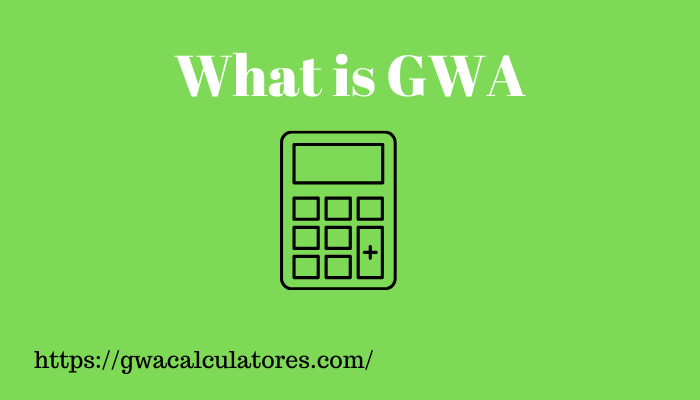What Is GWA & Why Is It Important? – 3 Simple Steps to Compute GWA
The General Weighted Average (GWA) is a key academic metric used by educational institutions, primarily in the Philippines, to assess a student’s overall performance. It is computed by averaging the grades from all subjects while considering the weight of each subject based on its credit units.
The GWA holds great significance in academics as it offers a comprehensive view of a student’s overall performance. This metric plays a crucial role in determining eligibility for scholarships, honor roll recognition, and even admission to higher education institutions.

3 Simple Steps to Compute GWA
Calculating your General Weighted Average (GWA) is a straightforward process. Follow these three steps to determine your academic standing accurately.
Understanding General Weighted Average
The first step in computing your GWA is understanding the grade point system. Each letter grade is assigned a corresponding numeric value, which serves as the basis for calculation.
Applying the GWA Formula
To compute your GWA, multiply each grade point by its respective course’s credit units. Then, sum up all the weighted values and divide the total by the sum of all credit units.

Analyzing the Result
Your GWA reflects your overall academic performance. A higher GWA signifies strong academic standing, while a lower GWA highlights areas that may need improvement.
GWA Example – How to Compute General Weighted Average
Let’s apply the GWA formula with a practical example to better understand the computation process. Example: Suppose a student has the following grades and credit units:
| Subject | Grade | Credit Units |
| Math | 90 | 3 |
| English | 85 | 3 |
| Science | 88 | 4 |
| History | 92 | 2 |
Step 1: Multiply each grade by its credit units:
- Math: 90 × 3 = 270
- English: 85 × 3 = 255
- Science: 88 × 4 = 352
- History: 92 × 2 = 184
Step 2: Sum up the weighted values:
270 + 255 + 352 + 184 = 1,061
Step 3: Divide by the total credit units:
Total Credit Units = 3 + 3 + 4 + 2 = 12
GWA = 1,061 ÷ 12 = 88.42
Thus, the GWA of the student is 88.42.
To illustrate, consider three subjects with different credit units and grades. Multiply each grade by its corresponding credit units, add up the results, and divide by the total number of credit units to get your GWA.
However, if your institution follows the GPA system instead of GWA, you can use a GWA to GPA Calculator to easily convert your grades. This tool ensures accuracy when switching between grading systems.
What Is GWA & Its Equivalent?
General Weighted Average (GWA) is a grading system used in the Philippines to assess a student’s overall academic performance. It is computed by averaging all subject grades while considering their respective credit units.
The GWA equivalent refers to how GWA aligns with other grading systems, such as the Grade Point Average (GPA) used internationally. Some institutions provide a conversion chart to translate GWA into GPA or percentage grades, helping students meet various academic requirements.
GWA Rating Table & Equivalents
In the Philippine grading system, GWA follows a numerical scale where 1.0 is the highest and 3.0 is the passing mark. Below is the standard grading scale with its equivalent letter grades and percentage ranges:
| Grade Point | Grade Letter | Equivalent Percentage |
| 1.0 | A+ | 99-100% |
| 1.25 | A | 96-98% |
| 1.5 | A- | 93-95% |
| 1.75 | B+ | 90-92% |
| 2.0 | B | 87-89% |
| 2.25 | B- | 84-86% |
| 2.5 | C+ | 81-83% |
| 2.75 | C | 78-80% |
| 3.0 | C- | 75.00-77.74% |
| 4.0 | – | – |
| 5.0 | F | Below 60% |
Tips to Improve Your GWA
Maintaining a high General Weighted Average (GWA) requires dedication and smart study strategies. Here are some effective tips to boost your academic performance:
- Manage Your Time Wisely – Create a study schedule that balances academics, extracurricular activities, and rest to avoid burnout.
- Stay Consistent with Studying – Regularly review lessons instead of cramming before exams to retain information better.
- Participate in Class – Engage in discussions, ask questions, and take notes to enhance understanding and improve class performance.
- Seek Help When Needed – Consult teachers, tutors, or classmates if you’re struggling with a subject to avoid low grades.
- Prioritize High-Unit Subjects – Focus more on subjects with higher credit units, as they have a bigger impact on your GWA.
- Complete Assignments on Time – Submitting quality assignments and projects on time helps maintain good grades.
- Stay Motivated & Set Goals – Aim for academic excellence by setting achievable targets and rewarding yourself for progress.
By following these tips, you can gradually improve your GWA and maintain strong academic performance.
Conclusion
GWA is a key academic metric that affects scholarships, honors, and career opportunities. By understanding its computation and applying smart study habits, you can improve your GWA and achieve academic success.
